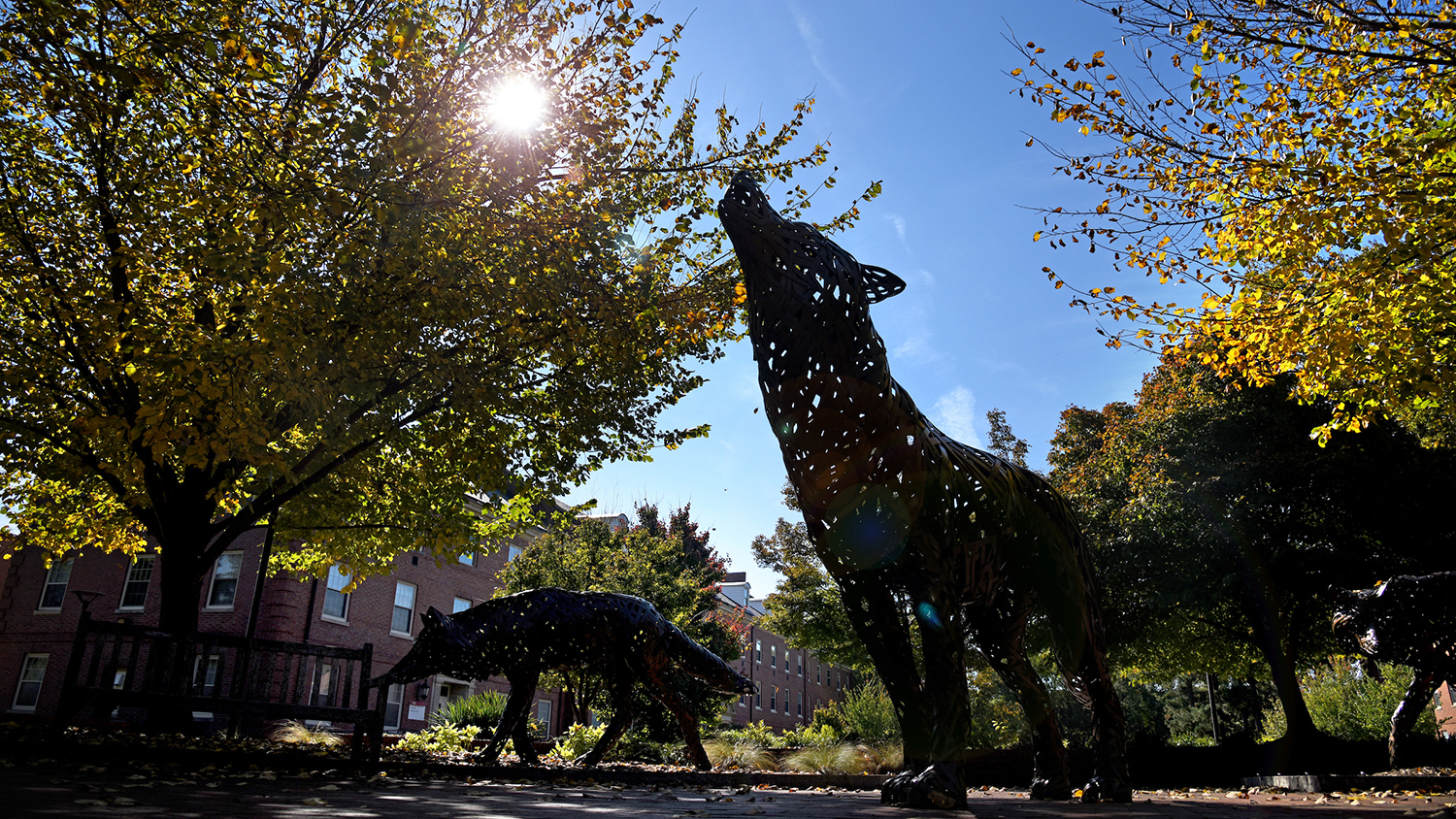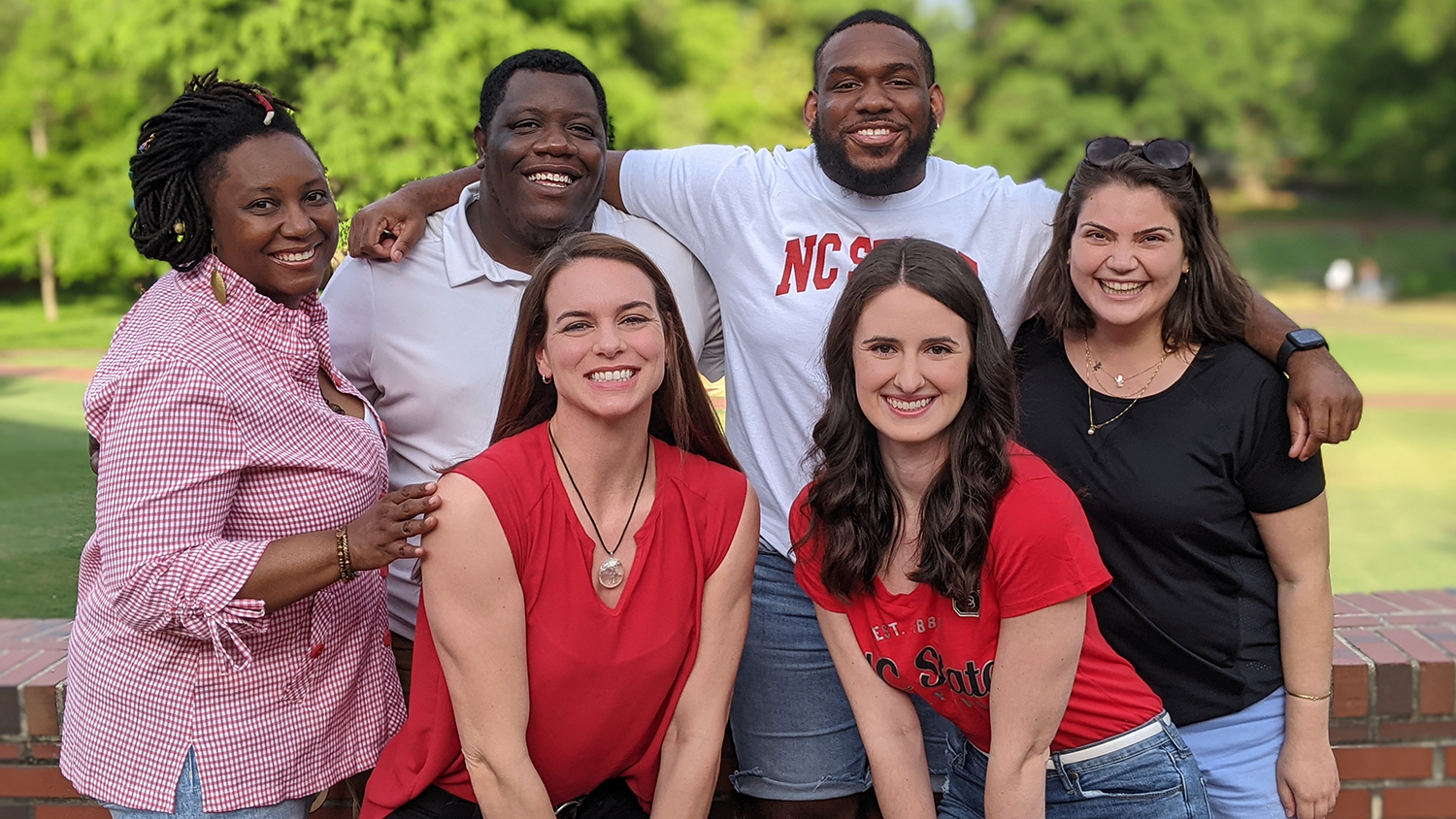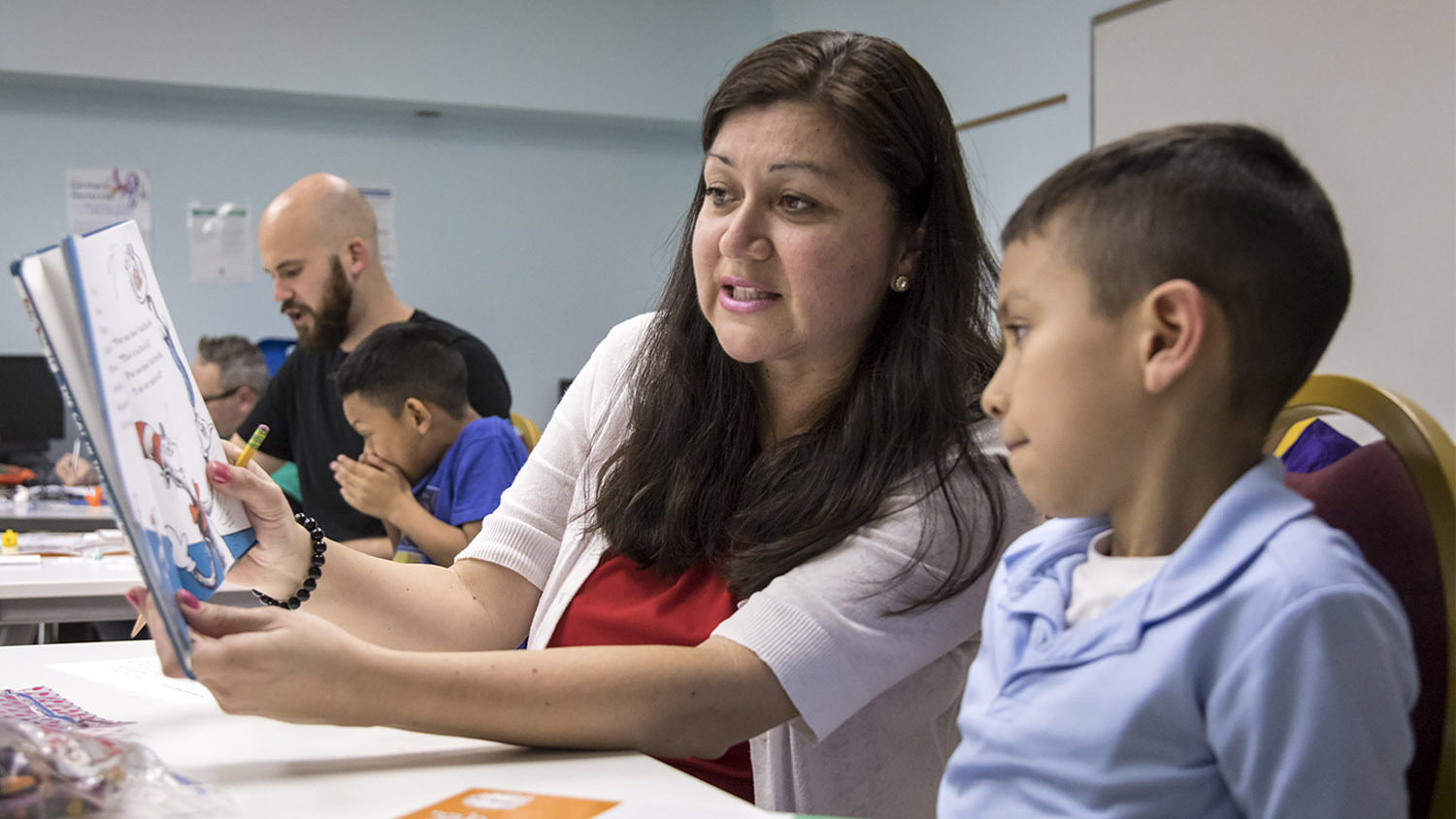College of Education and College of Natural Resources Partnership Provides Teachers with Professional Development in Bioproducts and Bioenergy
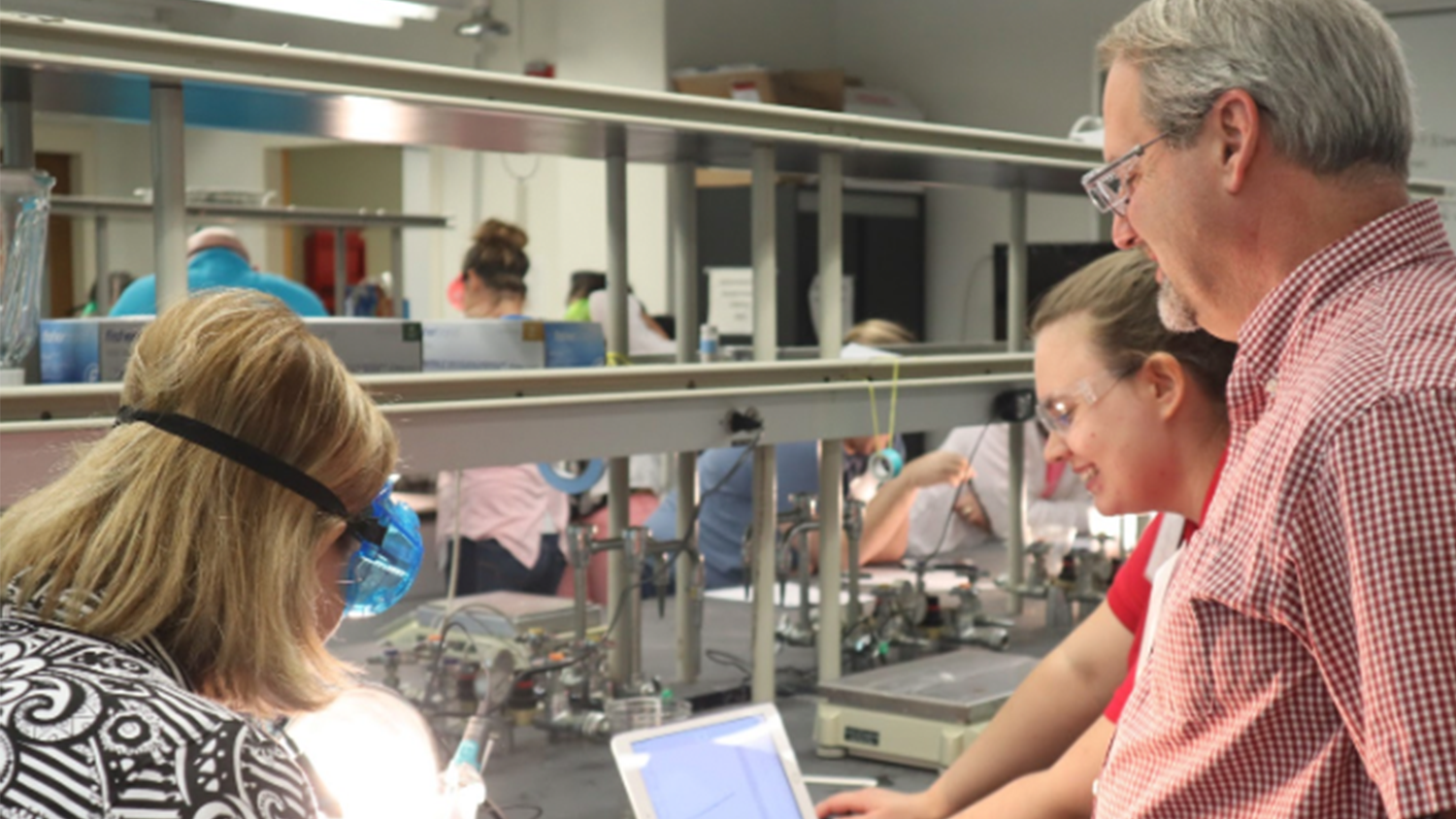
Sixteen high school science and career and technical education (CTE) teachers attended a four-day hands-on professional development workshop at NC State in July. The workshop was part of the USDA-funded Sustainable Bioproducts and Bioenergy Program (SBBP), a collaboration between NC State’s College of Natural Resources and College of Education.
The high school science and CTE teachers have successfully completed their first year in the Sustainable Bioproducts and Bioenergy Program (SBBP), which also involved a one-day orientation in August 2018 and completion of two graduate-level distance education courses covering science, engineering and sustainability topics related to bioproducts and bioenergy.
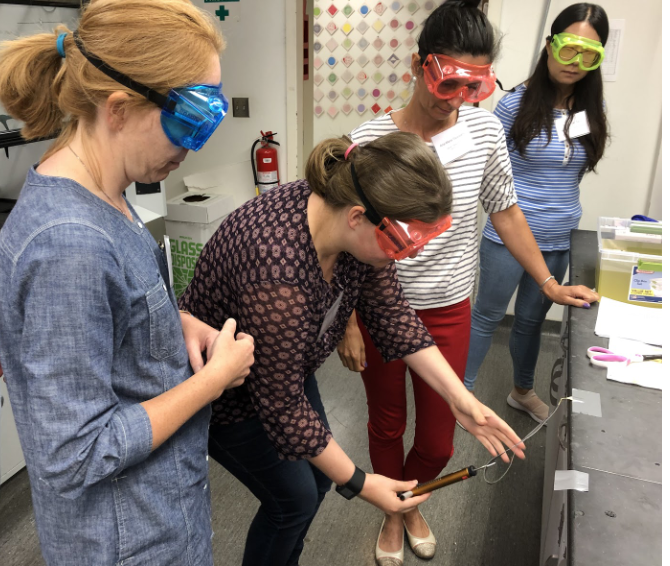
The four-day summer workshop gave teachers an opportunity to learn new bioeconomy labs and classroom activities, including biorefining pineapple to make paper and bioethanol, creating bio-based plastic films, and constructing models to represent the effects of climate change. All of the labs were designed to integrate technology, such as Vernier probeware and iPads that show real-time data collection and graphs.
Teachers co-developed curricula to implement in their classes to promote student interest in bioproducts, bioenergy and related careers. At the end of the week, they presented plans to implement bioproduct and bioenergy lessons into their classes for the upcoming academic year and received supply kits necessary to carry out the new activities with students.
In addition to participating in labs and curriculum planning during the workshop, teachers had unique opportunities to tour the demonstration paper machine and an educational forest on NC State’s campus.
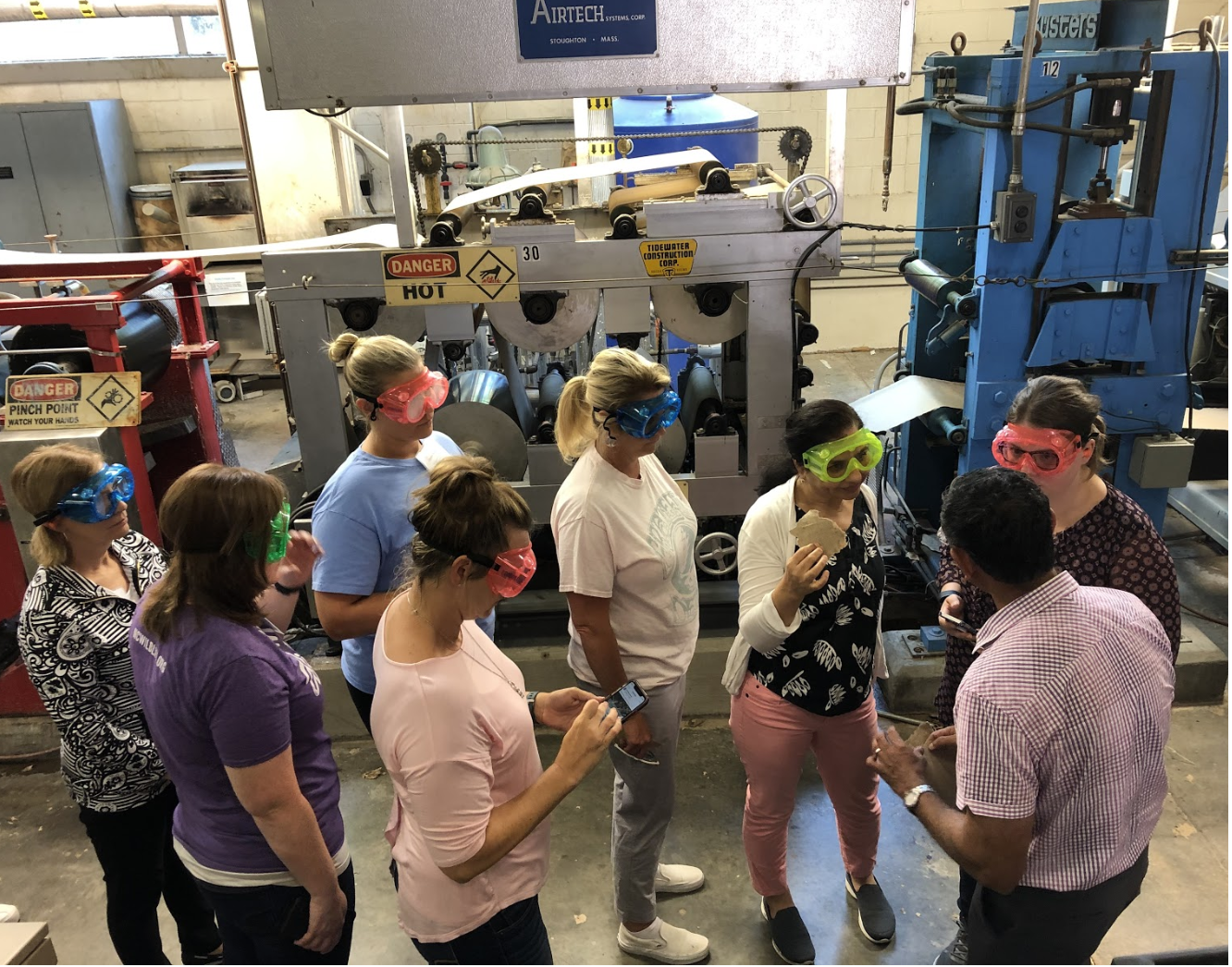
Teachers also engaged with industry professionals throughout the week during panel discussions and presentations. Overall, teachers said they valued the workshop experience, particularly the hands-on labs, discussion, collaboration and opportunities to modify the activities to fit their curricula.
“This workshop was one of the best professional development courses that I have attended in a long time,” one participating teacher wrote in an evaluation survey about the workshop. “The labs were well written and the debriefing sessions were helpful for classroom implementation. Additionally, the guest speakers and the discussion topics were relatable for me as a teacher and will impact my classroom for years to come.”
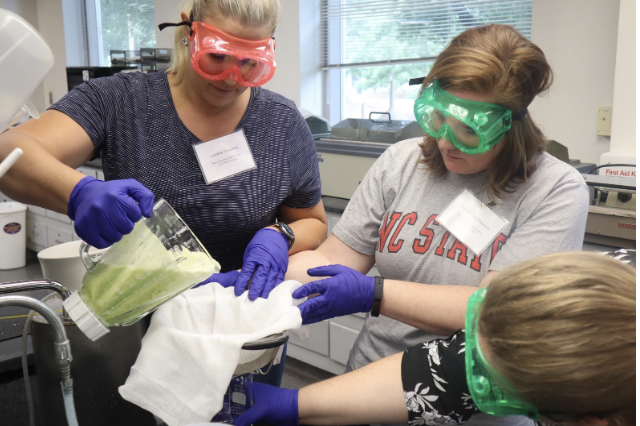
The project is supported by the AFRI Competitive Grants Program: Sustainable Bioenergy and Bioproducts Challenge Area: Investing in America’s Scientific Corps: Preparing a New Generation of Students, Faculty, and Workforce for Emerging Challenges in Bioenergy, Bioproducts, and the Bioeconomy.
The event was co-lead by faculty, staff and graduate students from the College of Natural Resources and the College of Education, including Richard Venditti, Ph.D., professor in the Department of Forest Biomaterials; Meg Blanchard, Ph.D, professor of science education; Shana McAlexander, distance education program manager in the Department of Biomaterials; and Katie McCance, graduate research assistant at the College of Education.
- Categories:
